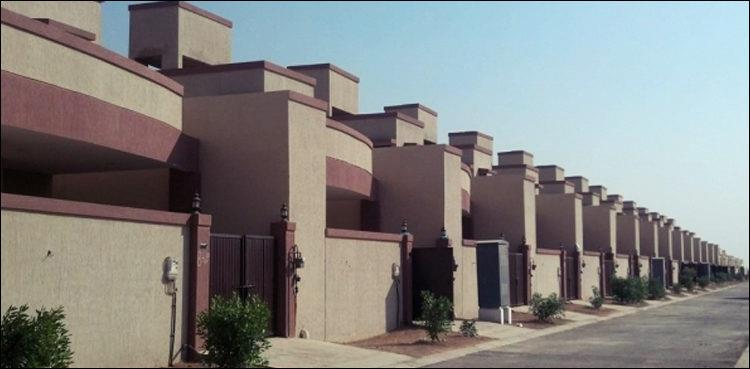(MENAFN- Tribal News Network) UN Habitat in collaboration with Ministry of Housing and Works organized two sessions at the International Housing Expo 2022, Pakistan. The objective was to review the impact of the unprecedented floods of 2022 in Pakistan, identify challenges and actions for achieving climate resilient housing and sustainable post disaster rehabilitation and recovery. The deliberations were focused on the need to move towards zero carbon housing and adaptation of green building technologies and practices for a sustainable built environment and need for recovery planning and framework. Move towards zero carbon housing in consideration to climate change dimension in development and ensure climate resilience. In the inaugural session, Ms. Sherry Rehman, Minister for Climate Change advocated for resilient housing to reduce climate vulnerability.
The sessions commenced with opening remarks from Mr. Iftikhar Ali Shellwani, Secretary, Ministry of Housing and Works and Mr. Shahzad Nawaz Cheema, Joint Secretary Ministry of Housing. Mr. Iftkikhar Ali Shelwani explained that it is the responsibility of the government to provide affordable housing to the people, but it needed the help of the private sector to achieve that goal. He added that the event held on the basis of the public-private partnership was the right step in that direction. Mr. Shahzad Hassan stressed on the need for immediate actions both on the ground and at policy level to mitigate the disastrous effects of Climate Change.
Experts including Dr. Shoaib Ahmad, Distinguished Professor PIMSAT; Mr. Raja Rehan Arshad, Former Lead World Bank on Disaster Risk Reduction; Ms. Nusrat Nasab CEO AKAH; Mr. Jawed Ali Khan, HPM, UN Habitat; Ms. Mio Sato, Chief of Mission, IOM, Ms, Maggie Stephenson, Recover Advisor, UNOPS; Mr. Shahid Saeed, CEO, Indus Earth Trust; Mr. Fazal Noor, Associate Professor, SSUET; Mr. Mehboob IIlahi, Former Director General, MOCC participated as panelists in two sessions.
Climate Resilient Housing: Need for ReplanningIn the session on Climate Resilient Housing, Need for Replanning, Dr. Shoaib Ahmad, Distinguished Professor, PIMSAT as a keynote speaker highlighted vulnerability of Pakistan with respect to climate change and need for climate resilient affordable housing. He emphasized that future constructions must pay attention to flow of water that destroy housing every 4-5 years and government must prohibit construction in low lying areas. Building codes should be adopted at all levels. We now must build what lasts longer, and for that its important that the reconstruction and rehabilitation is compatible with local conditions, and it must take the local need scenarios into the consideration.
The panellists emphasized that it is needed to move towards resilient and zero carbon housing and incentives must be provided to private sector in order to have sustainable housing, they also need to be part of planning. Panellists also raised concerns on raising voices of rural communities who are facing challenges for affordable housing, so there is a need to include their concerns in the planning. Engage community specially women in the building climate resilient housing.
It was recommended that the opportunity offered by the post flood construction in Pakistan may be availed to revitalize zero carbon and low cost indigenous materials and vernacular construction techniques. The informal settlements are regularized and upgraded. Recovery and Reconstruction without reforms may prove to be unsustainable. This process as a first stage should involve setting up standards and institutional arrangements through broad based consultation for reconstruction with the objective of achieving climate resilient housing. To support this initiative, mapping of indigenous materials, especially zero carbon low cost construction materials is important.
Sustainable Post Disaster Rehabilitation and ReconstructionIn the session on Sustainable Post Disaster Rehabilitation and reconstruction, Mr. Raja Rehan Arshad, Senior Advisor, World Bank as a key note speaker urged on taking the disasters as an experience and learning opportunity to Build Back Better by identifying the gaps, and loopholes, which can be used to improve the national response system. The panellists emphasized that there is need for operational reforms and not major reforms and prioritizing people-cantered socio-economic recovery and also outcome based planning instead of sector based planning. Building back stronger and faster will reduce well-being losses by ensuring that reconstructed infrastructure can resist more intense events in the future.
It was highlighted to ensure that post-disaster support reaches all affected population groups. This emphasizes the importance of providing reconstruction support to low-income households, which are typically more exposed, more vulnerable, and less comprehensively supported. Further, it was deliberated that building financing mechanisms that fast disburse affordable, low-interest financing to businesses affected by the disasters.
It was also stressed the importance of the Right Base Approach in post-disaster assessment phases, which is conscious and systematic integration of rights and right principles into the core steps of the work which is done during the disaster response, which can range from the identification of all right holders and then strengthening their capacity to claim their rights and to the duty bearers who bear the obligation to reach back and protect, ensure these rights.
Gender based recovery was also supported by providing gender-specific support for reconstruction and recovery, so that the differing needs of women and men are met. Use recovery as an opportunity to bridge the gender-resilience gap. Women may be more vulnerable to the impact of disasters; gender-specific support has the capacity to improve future resilience. The post-disasters investments we make must not only be materialistic investments but also the investment in people. We must mainstream the considerable talent from all age groups to not only solve our issues but also to utilize their unutilized potential in a constructive way.
The Chief Guest Federal Minister for Law and Justice, Mr. Azam Nazir Tarar stressed the need to implement the existing laws to transform the ideas into reality. The Chief Guest concluded the session with an urge to make the cities better, sustainable, and livable for the current as well as the generations to come.
Hits: 12




















Comments
No comment